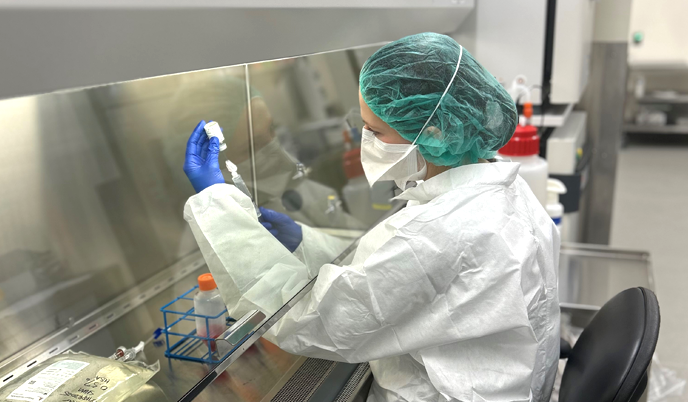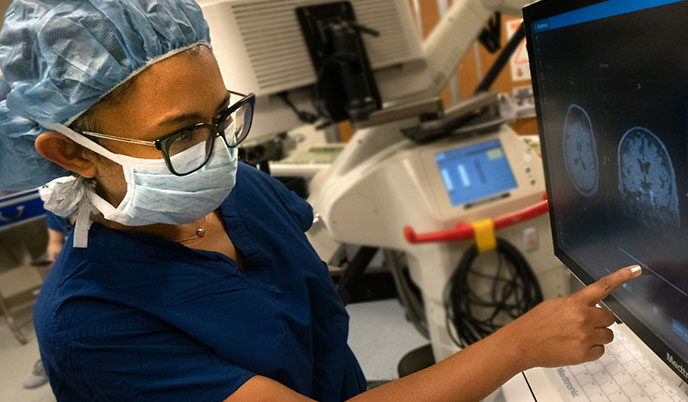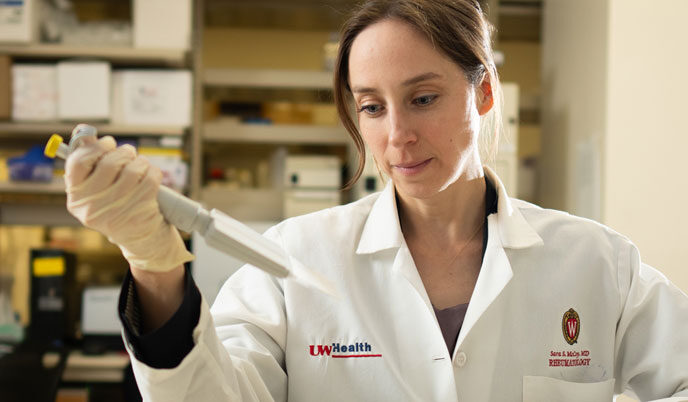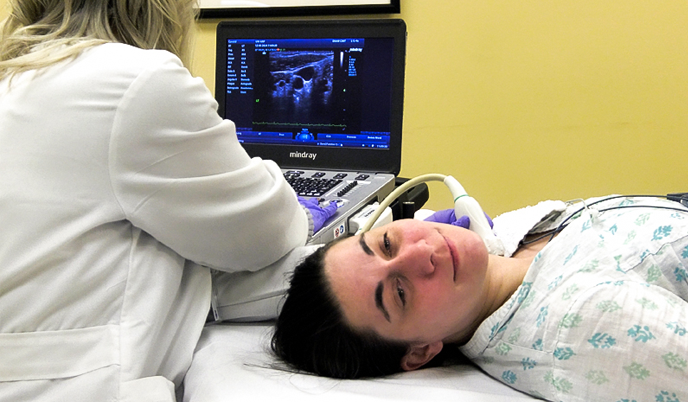
Gene analysis helps optimize prostate cancer radiation dose
New results from two randomized clinical trials showed that analyzing a gene expression signature in tumors may help doctors customize radiation treatments for prostate cancer patients, improving outcomes while avoiding unnecessary side effects.

Newborn genomic testing expands with support from Wisconsin medical schools
Through an effort led by Wisconsin’s two medical schools, newborn genomic testing capacity will expand to more hospitals throughout the state, allowing rapid diagnosis of rare genetic conditions and improved medical management for critically ill newborns.

Program for Advanced Cell Therapy expands facility and cell preservation capabilities
A program at the University of Wisconsin School of Medicine and Public Health and UW Health is continuing to grow as it develops novel cell-based therapies for a variety of difficult-to-treat conditions.

Q&A: Mahua Dey explores glioblastoma vaccine
Dr. Mahua Dey is an associate professor in the Department of Neurological Surgery and the director of the surgical neuro-oncology program in the University of Wisconsin School of Medicine and Public Health. She specializes in the surgical management of both benign and malignant brain tumors.

FDA fast-tracks therapy for radiation-induced dry mouth
A therapy under development at the University of Wisconsin School of Medicine and Public Health to treat a common side effect of radiation therapy recently got a boost from the Food and Drug Administration.

AI screening tool helps refer patients for opioid use disorder treatment
An artificial intelligence-driven screening tool developed by a research team at the University of Wisconsin School of Medicine and Public Health successfully identified hospitalized adults at risk for opioid use disorder and recommended referral to inpatient addiction specialists.

Q&A: Sara McCoy on innovative treatment for Sjögren’s disease
Dr. Sara McCoy, a rheumatologist in the Department of Medicine, is one of the nation’s leading experts on Sjögren’s disease, an autoimmune disorder that affects moisture-producing glands in the eyes, mouth and other parts of the body.

Football helmet covers do not reduce concussions for high school players
A study of 2,610 Wisconsin high school football players found that wearing soft-shell helmet covers, marketed as Guardian Cap helmet devices, during practice had no effect on the rates of sports-related concussions.

Experimental cell therapy trial treats first Sjögren’s disease patient
The first person in the world to receive a dose of a novel cell therapy for a symptom of the immune disorder Sjögren’s disease has been treated during a clinical trial conducted by researchers at the University of Wisconsin School of Medicine and Public Health.

A path for safer opioid prescribing
An approach to prescribing opioids that pairs clinician education with patient-centered monitoring and feedback could help primary care doctors minimize prescribing opioid medications to manage patients’ chronic pain, according to a University of Wisconsin–Madison research team.

Study launches to test effects of vaping on cardio-pulmonary health
The National Institutes of Health have awarded a five-year, $5.7 million grant to UW to study the long-term effects of vaping on heart and lung health.

Mixed dose radiation enhances immune response to cancer
A new study in mice shows that delivering different doses of radiation to a tumor revs up the immune system and allows it to detect not only the treated tumor but distant tumors that were not irradiated. When mixed dose radiation is followed with immunotherapy drugs called immune checkpoint inhibitors, it makes the drugs more effective at killing cancer cells throughout the body than when radiation was delivered at a single dose level.